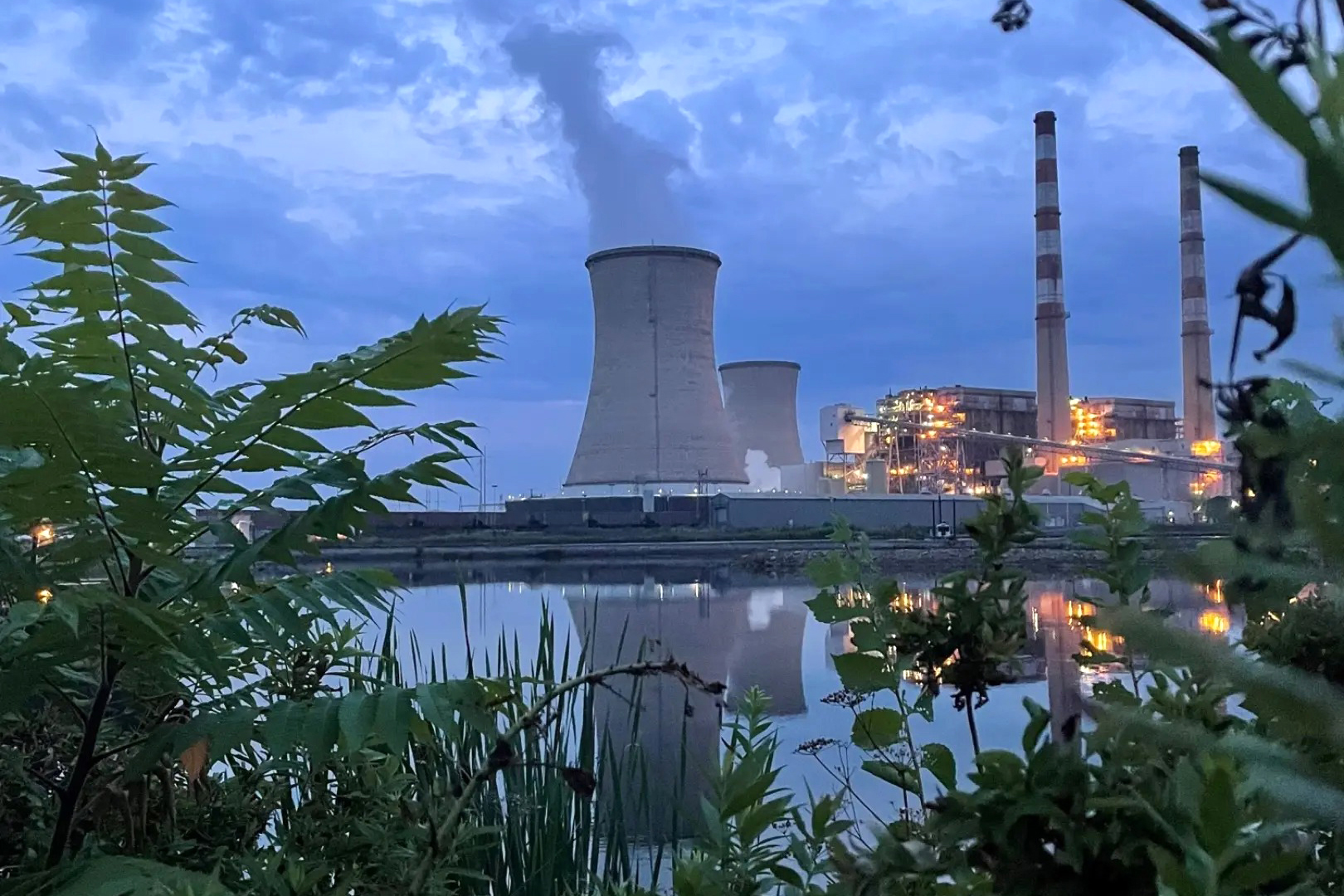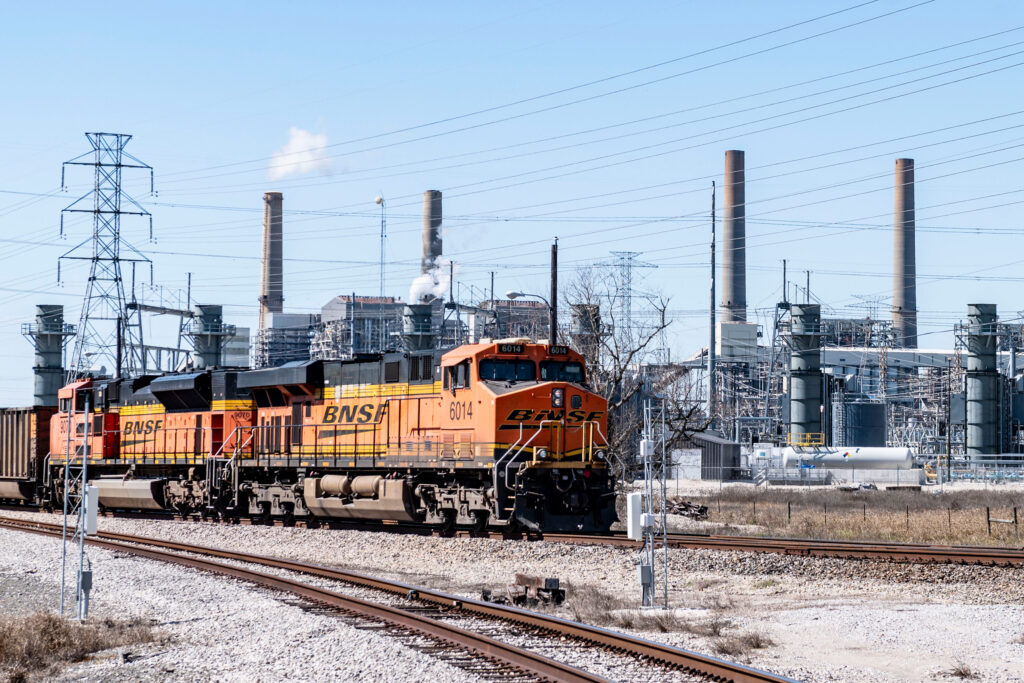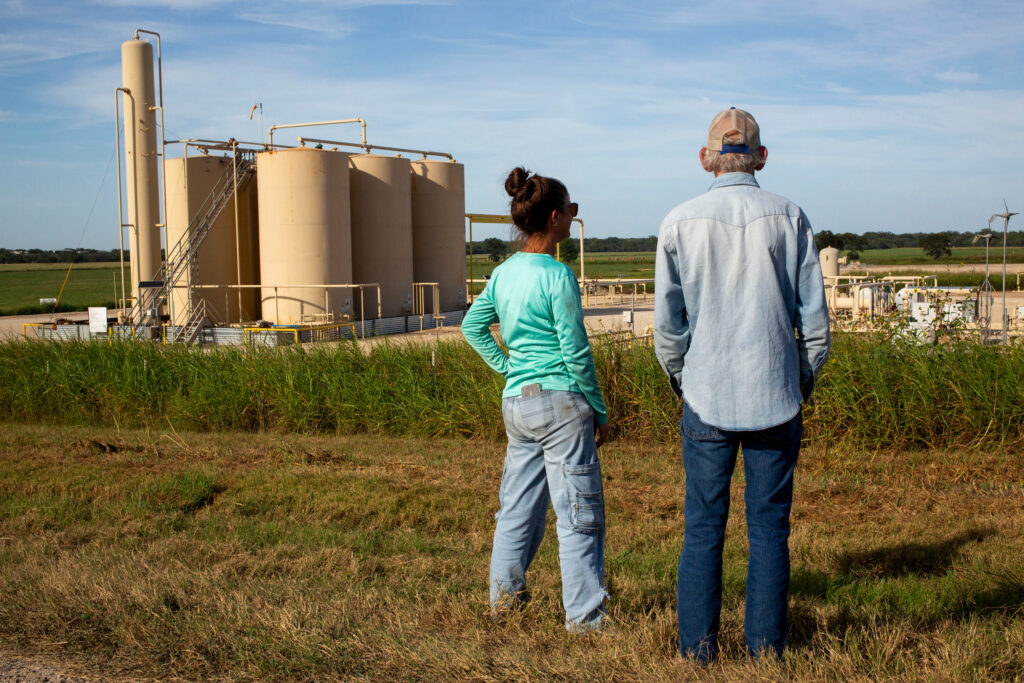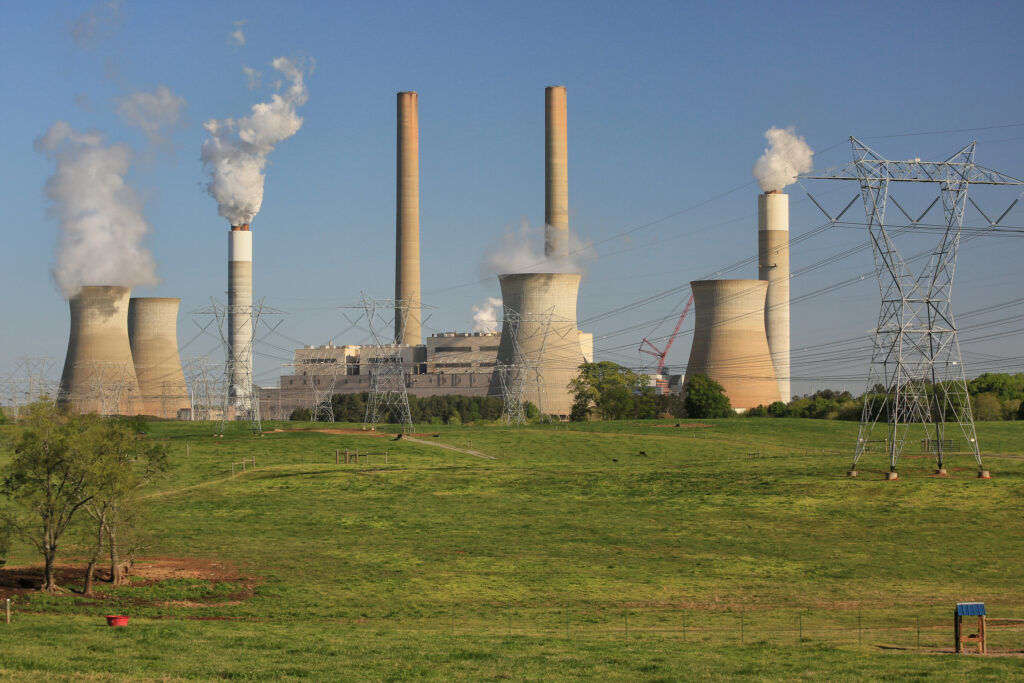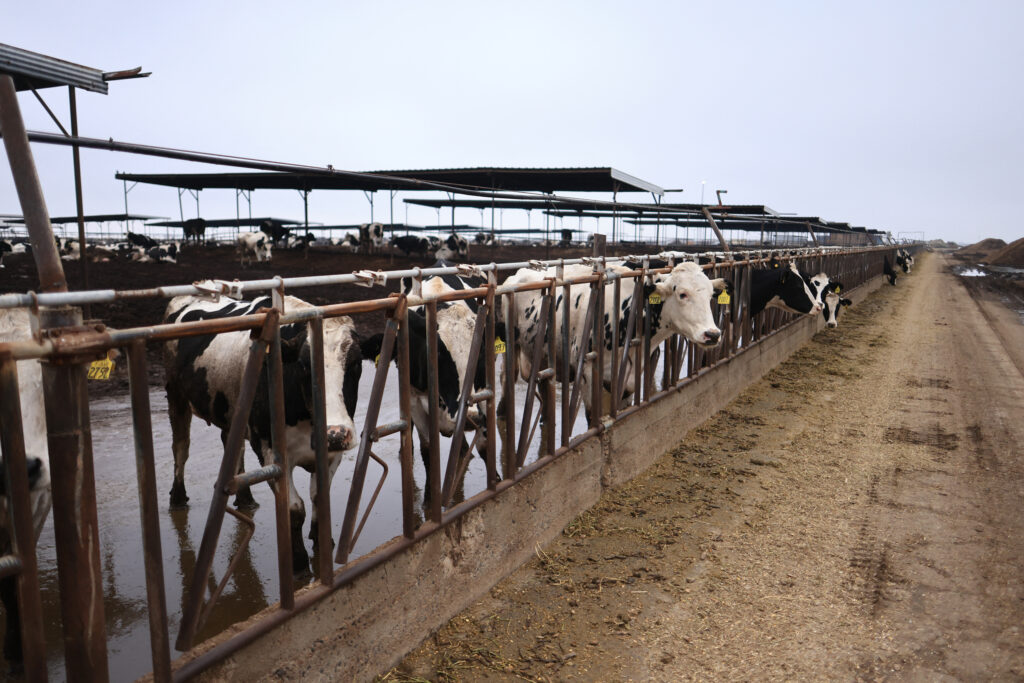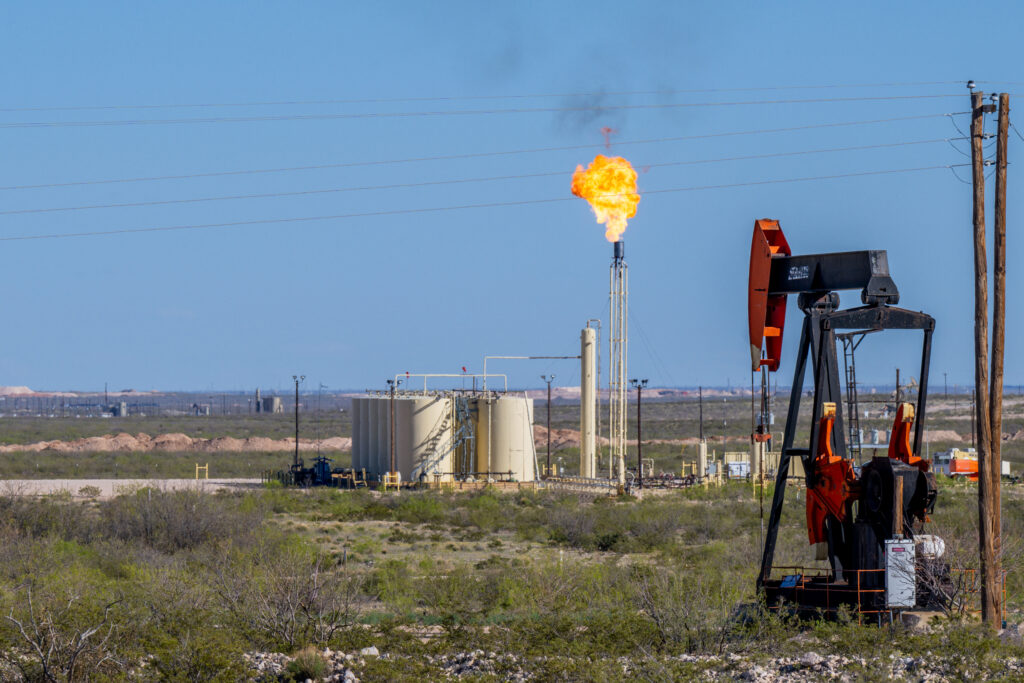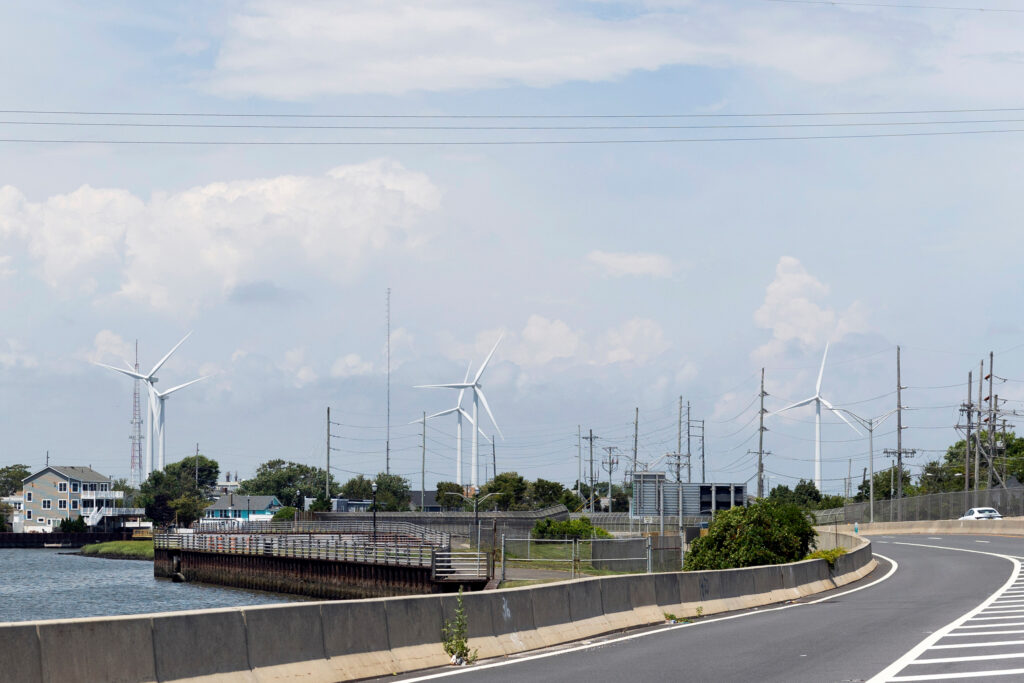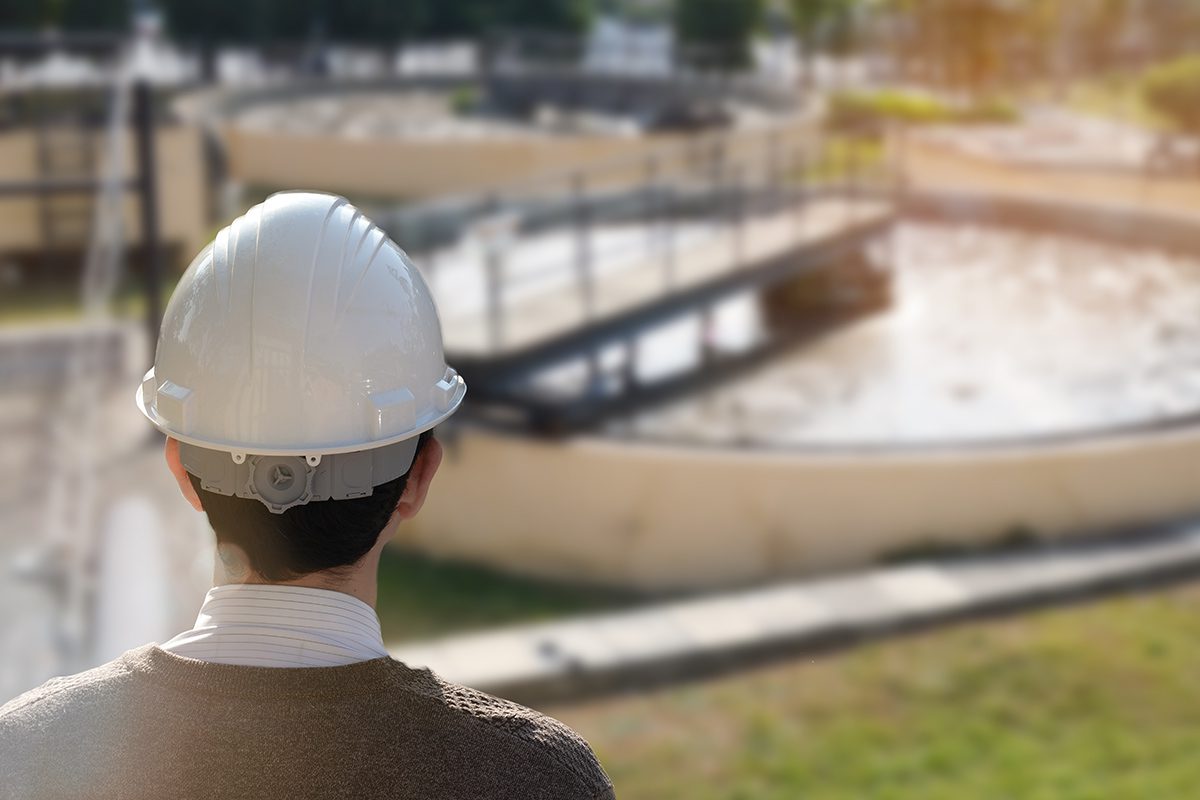After years of deliberations, the technical staff of the Texas Railroad Commission recommended that regulators deny a permit to dispose of oilfield waste in the small town of Paxton. But at the commission’s January open meeting, the elected commissioners voted 2-1 to approve the permit anyway.
“This application has been thoroughly reviewed, examined and reexamined,” said Commissioner Jim Wright. “I believe that this application meets or exceeds all commission requirements.”
Eric Garrett directs the Paxton Water Supply Corporation, which operates wells next to the proposed disposal site. He said the vote was a “slap in the face.” Garrett said in an interview he is worried about the town’s water supply from the Carrizo Wilcox aquifer.
“We are not against the oil and gas industry,” he said. “But we need to move away from drinking water supplies.”
We’re hiring!
Please take a look at the new openings in our newsroom.
See jobs
Commercial oilfield landfills accept drill cuttings, muds and other waste that is legally considered non-hazardous but contains toxic and often carcinogenic heavy metals like arsenic and cadmium, benzene and other petroleum-based chemicals. Each landfill can cover dozens of acres and generate significant truck traffic.
After the commissioners’ vote on the Paxton permit, a 25-day period to request a re-hearing began.
Paxton isn’t the only town in East Texas concerned about oilfield waste. Thirty miles north, near the town of Elysian Fields, McBride is building another, much larger oilfield waste facility. Residents held a meeting in late January to raise awareness and hear about the experiences of Paxton and Waskom, another East Texas town with a McBride facility.
Eleven of the state’s 87 active commercial disposal sites are in the Railroad Commission’s Kilgore district in East Texas. Most of these sites are waste separation facilities, distinct from the landfills proposed in Paxton and Elysian Fields. There are two other pending permits, in addition to Paxton, in the district. Railroad Commission staff and a lawyer representing McBride said landfill capacity is urgently needed in the region. But critics say much of the waste is coming from Louisiana, where rules for oilfield waste disposal are more strict. East Texas residents worry that the massive amounts of waste will contaminate ground and surface water in the region.

“Our permitting staff in Austin and inspectors in district offices take all measures to ensure community and environmental safety,” said Railroad Commission spokesperson Bryce Dubee.
He noted that the number of monitoring wells at the Paxton facility had been increased. He said operators are not required to identify waste coming from out of state.
“Commissioner Wright has himself built hazardous and oil and gas waste disposal facilities in areas with shallow groundwater—he is intimately familiar with what it takes to keep the groundwater safe,” said Aaron Krejci, the commissioner’s director of public affairs.
Water Concerns in the Piney Woods
McBride, a waste company owned by Joseph McBride, first applied in 2019 for a permit to construct a waste facility on a 92-acre property outside the Shelby County town of Paxton. Nearby landowners and the Paxton Water Supply Corp. protested the permit, which triggered a hearing process. There are homes within 500 feet of the property line and 35 water wells within a one-mile radius.
An administrative law judge summarized the years-long debates over the Paxton facility at the Railroad Commission open meeting on Jan. 29. McBride said a layer of natural clay beneath the facility would prevent waste from seeping underground and entering the aquifer. The company plans to use multiple liners to prevent seepage and install numerous monitoring wells at the site. The residents protesting the permit presented evidence that the site sits on an aquifer recharge zone and sand underneath the site would allow liquid waste to seep underground.
After several rounds of evidence collection and hearings, the commission’s technical staff ruled that McBride did not demonstrate that a facility at that location would be protective of groundwater and recommended the commission deny the permit application.
Commissioners Wright and Wayne Christian overruled that recommendation and voted in favor of the permit at the open meeting. Commissioner Christi Craddick was the dissenting vote. Christian is from Center in Shelby County. He responded to criticism of the vote in the local Light and Champion newspaper.
“I understand that some people are upset by this decision, and I take those concerns seriously. However, it would have been unethical for me to vote against my principles simply because there was opposition in my own backyard,” he said. “I would not have supported this permit if I believed it posed a threat to our groundwater or community. After all, I live here too.”


John Hicks, an Austin-based attorney representing McBride, said that McBride is in discussions to sell the Paxton permit and that the new owner would have to comply with all permit conditions.
“The final Paxton permit includes multiple layers of protection—liners, monitoring wells, and stormwater controls—ensuring safe operations that exceed regulatory standards,” he said. “These facilities are essential for jobs, economic growth, and energy independence by reducing costs and ensuring safe waste management.”
There are several existing waste separation facilities in the Kilgore district in East Texas. These facilities separate the liquid waste, which can be injected underground, and the solid waste, which must be disposed of at a landfill. There are no existing oilfield landfills in the district. Solid waste separated at the McBride facility in Waskom is currently sent to a landfill regulated by the Texas Commission on Environmental Quality in Mount Pleasant, some 80 miles away, according to Hicks. The Paxton facility will only accept solid waste, and no liquid waste.
Eric Garrett of Paxton is not re-assured.
“We were shocked and dismayed that they have so little regard for the health and well-being of Shelby County residents,” he said of the commissioners’ vote.
“Looking back along McBride’s past, it appears to me they have been cited numerous times,” he said. “That doesn’t give us much encouragement for our own water supply.”
McBride’s facility in Waskom, Texas, has been subject to numerous complaints from residents. The Railroad Commission has cited McBride dozens of times in recent years for failing to follow the terms of its permit and illegally disposing of oil and gas waste in Waskom, according to agency records. There is a confirmed case of groundwater contamination at the site, though McBride contends it dates back to a previous owner of the property, which has been used for oil and gas activities since the 1950s.


Garrett would like the Texas legislature to adopt stricter regulations for waste facilities. He also thinks campaign contributions to the elected commissioners from oil and gas disposal companies creates the “appearance of impropriety.”
“It does not make people have confidence in your judgement,” he said.
Joseph McBride has contributed to all three sitting commissioner’s campaigns. Commissioner Craddick was re-elected in November 2024 and received over $45,000 in campaign contributions from McBride, according to campaign finance reports. Her staff did not respond to questions.
Hicks, the McBride attorney, said that “nearly every” pro-oil and gas company in Texas contributes to the commissioners “to prevent anti-energy forces from taking over the agency.”
Concern Spreads in Elysian Fields
Two counties over, Debrah Linn had no idea McBride was building a similar facility near her home in Elysian Fields. She was shocked to find out last month that the construction site she had noticed would be a 187-acre oilfield waste landfill. The facility in rural Harrison County is the size of 140 football fields. The construction site is a bare patch of land surrounded by forest, dwarfing the size of nearby drilling well pads.
A company called M2T, LLC, owned by Joseph McBride, applied for the permit in January 2022. The Railroad Commission granted the permit a year later. The Elysian Fields facility will include the landfill, one salt water disposal well, a truck wash and numerous ponds for water storage.
This story is funded by readers like you.
Our nonprofit newsroom provides award-winning climate coverage free of charge and advertising. We rely on donations from readers like you to keep going. Please donate now to support our work.
Donate Now
Linn’s home is a quarter mile from the facility under construction. The permit application stated the area is not a flood zone. “We disagree,” she said. “It’s always flooded.”
Linn has family in Louisiana and sees truck traffic from the neighboring state coming into Texas. She thinks it is only logical that drillers in Louisiana would dispose of their waste over the state line.
“Louisiana gets the reward and Texas has to put up with all the waste,” she said. “We’re just wondering, where does it stop?”
“Of course we’re worried about all the chemicals that are in it,” she said. “And the fact that it’s sitting at the headwaters of the Socagee Creek.”
The creek feeds into the Sabine River and the Toledo Bend reservoir. Linn has contacted the Environmental Protection Agency and the Army Corps of Engineers with her concerns about water contamination. Linn said water has pooled around the construction site, which a local TV crew documented.
Dubee of the Railroad Commission said the permit has extensive requirements for water protection. The operator is also required to file a $9 million bond to ensure the facility is operated and closed in compliance with commission rules. He said the concerns about the ongoing construction should be referred to the Texas Commission on Environmental Quality.
Elsewhere in the Kilgore district, Common Disposal LLC has applied to build the Shelby County Hudspeth treatment facility and Select Water Solutions LLC has applied to build the Davis 3 waste separation facility.
About This Story
Perhaps you noticed: This story, like all the news we publish, is free to read. That’s because Inside Climate News is a 501c3 nonprofit organization. We do not charge a subscription fee, lock our news behind a paywall, or clutter our website with ads. We make our news on climate and the environment freely available to you and anyone who wants it.
That’s not all. We also share our news for free with scores of other media organizations around the country. Many of them can’t afford to do environmental journalism of their own. We’ve built bureaus from coast to coast to report local stories, collaborate with local newsrooms and co-publish articles so that this vital work is shared as widely as possible.
Two of us launched ICN in 2007. Six years later we earned a Pulitzer Prize for National Reporting, and now we run the oldest and largest dedicated climate newsroom in the nation. We tell the story in all its complexity. We hold polluters accountable. We expose environmental injustice. We debunk misinformation. We scrutinize solutions and inspire action.
Donations from readers like you fund every aspect of what we do. If you don’t already, will you support our ongoing work, our reporting on the biggest crisis facing our planet, and help us reach even more readers in more places?
Please take a moment to make a tax-deductible donation. Every one of them makes a difference.
Thank you,




